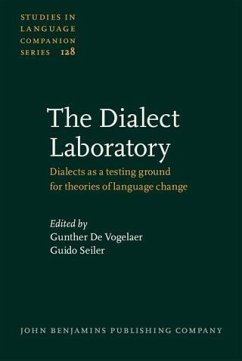Much theorizing in language change research is made without taking into account dialect data. Yet, dialects seem to be superior data to build a theory of linguistic change on, since dialects are relatively free of standardization and therefore more tolerant of variant competition in grammar. In addition, as compared to most cross-linguistic and diachronic data, dialect data are unusually high in resolution. This book shows that the study of dialect variation has indeed the potential, perhaps even the duty, to play a central role in the process of finding answers to fundamental questions of theoretical historical linguistics. It includes contributions which relate a clearly formulated theoretical question of historical linguistic interest with a well-defined, solid empirical base. The volume discusses phenomena from different domains of grammar (phonology, morphology and syntax) and a wide variety of languages and language varieties in the light of several current theoretical frameworks.
Dieser Download kann aus rechtlichen Gründen nur mit Rechnungsadresse in A, B, BG, CY, CZ, D, DK, EW, E, FIN, F, GR, HR, H, IRL, I, LT, L, LR, M, NL, PL, P, R, S, SLO, SK ausgeliefert werden.


